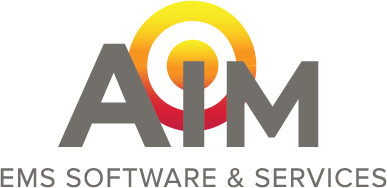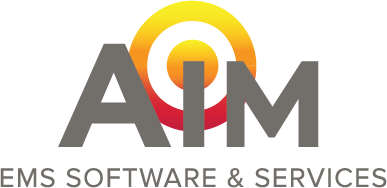Why is it crucial for ambulance billing experts to understand EMS service levels?
This blog post is part of a series that addresses ambulance billing best practices. Our ambulance billing blog series highlights tips and insights to help you improve ambulance billing efficiency, lower ambulance claim rejections, and get reimbursed faster.
Each EMS billing expert should understand the various levels of service to ensure the proper EMS reimbursement.
Although not required, many states use The EMS Scope of Practice as a guide for defining EMS licensure service levels. The National EMS Scope of Practice Model defines levels of EMS service and delineates the practices and competencies for each level of EMS personnel.
State policymakers play a critical role in occupational licensing policies, which means, as an EMS billing professional, especially those that bill in multiple states, it is important to understand how various state licensing is modeled. Some states permit licensed EMS personnel to perform skills and roles beyond the minimum skill set as they gain knowledge, additional education, and potentially additional certification. Section IV (Page 25) of the National EMS Scope of Practice Model does a good job of describing the standard EMS Service Levels and their educational requirements.
Why It’s Important For An Ambulance Billing Professional To Understand EMS Service Levels
As part of the ambulance coding process, an EMS billing professional needs to make sure the provider’s credentials are in line with the level of service performed. For example, an ALS transport that involves cardiac monitoring requires a paramedic (EMT-P) skill set. If the provider performing the service isn’t licensed to perform cardiac monitoring, the biller should be questioning the documentation, and should never bill at the higher level of care in cases where the EMS service level doesn’t meet state certification regulations.
EMS Service Levels Support Ambulance Billing, But Don’t Dictate Base Rate
Just because there is a paramedic (ALS) provider on the transporting crew, does not make the ambulance trip an ALS transport. The designation of the transport, ALS or BLS, is determined by the level of care provided and not the EMS service level of the provider. To bill ALS, an assessment or intervention must be done when medically necessary. For example; a 911 call for a possible broken toe and no other complaints, the ALS unit is dispatched. Dispatch protocol generally does not support ALS dispatch for this type of event and cannot be billed at the ALS level of care.
ALS Assist Ambulance Billing
An ALS assist occurs when two EMT’s, or basic life support providers, begin transport of a patient and request advanced life support assistance, a rendezvous, with a paramedic or other ALS provider. In ALS assist scenarios, the ambulance billing claim submission must contain both EPCR’s (BLS and ALS assist EPCR’s) to bill that claim as ALS. In addition, only the transporting agency can bill for the transport mileage.
Ambulance Billing A0432 or A0427?
Be aware, only the state of New York recognizes the ALS Intercept code of A0432. For the remainder of the states, ambulance billing professionals should utilize A0427 for ALS intercepts/assists. But again, only the transporting unit can bill for the patient-laden mileage. The ALS Intercept agency can have a separate contract with the BLS agency to share in the mileage charges, but that agreement would be independent of any insurance payers.
In Summary
Understanding the various levels of EMS services is extremely important to ambulance billing practices. Each EMS billing professional should understand the various levels of service and each level’s associated skills within their service area in order to ensure the proper level of EMS reimbursement.
AIM EMS Billing Services is here to help you determine EMS service levels to ensure you get your full EMS reimbursement.
If you have questions about ambulance billing or any ambulance billing processes, we want to support you. Call us at 1-800-726-4690, fill out our online information request form, or read more about our EMS Billing Services.
Read other articles in this series:
- Ambulance Billing Best Practice: Ensure Hospital-to-Hospital Ambulance Transport Reimbursement
- Ambulance Billing Best Practice: PCS Do’s and Don’ts for Non-Emergency Ambulance Services
- Ambulance Billing Best Practice: Billing Reimbursement Starts at Dispatch
- Ambulance Billing Best Practice: Insurance Verification Tips that Result in Payment
- Ambulance Billing Best Practice: CMS 855B Enrollment for Ambulance Billing




